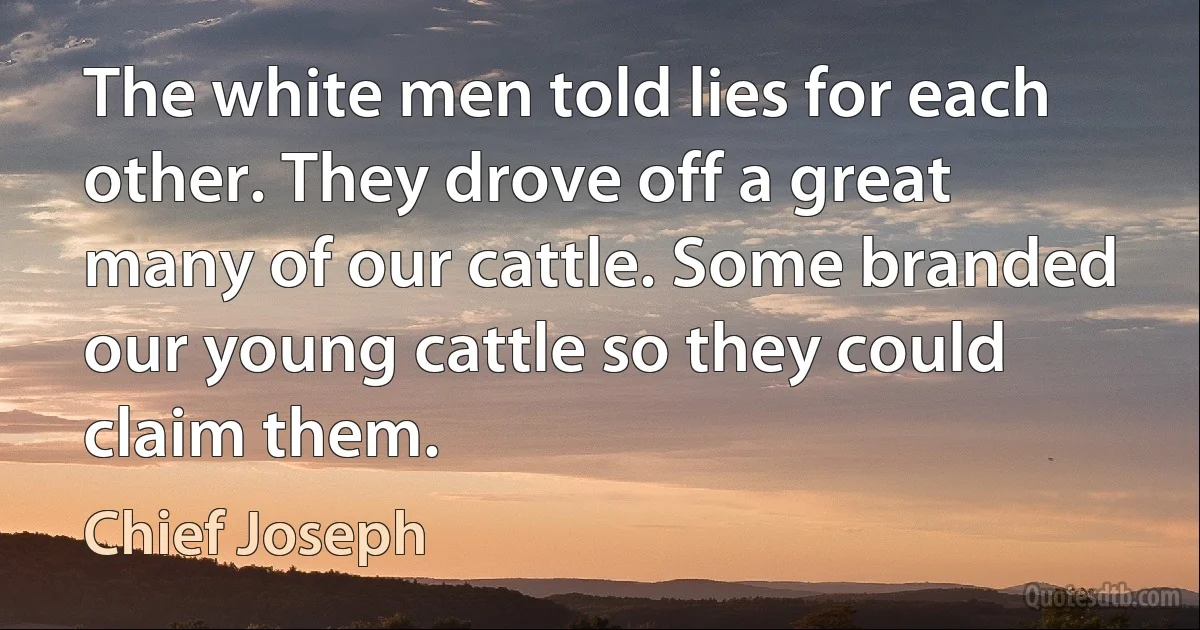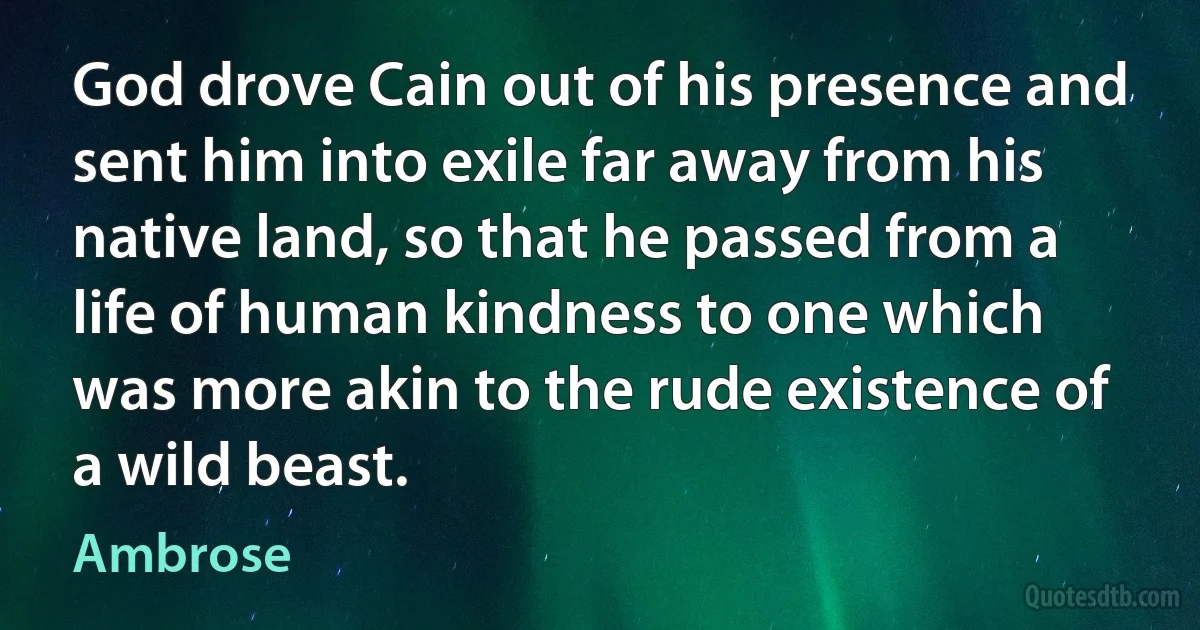Drove Quotes - page 5
When I was six, we moved to the small town of Stratford, about fifteen miles northeast of Wynnewood. My father had worked as a banker, a grain farmer, a fix-it man, and a mechanic. Now he was ready for a new line of work. When I was young, his restless streak seemed perfectly normal. A few years later, I realized that he was an optimistic dreamer, convinced that the next job or business would make us rich. And the fact is that my dad was good at everything he took on. Maybe too good. There wasn't a refrigerator, an outboard motor, a gas or diesel engine that he couldn't repair. If somebody drove over a backfiring John Deere Model 60 tractor to have Ray Franks "take a little look at the damn timing chain," my father would rebuild the engine. And if they'd shaken hands on a price of ten dollars for the job, he would not accept a nickel more, even if he'd spent fifteen dollars on spare parts.

Tommy Franks
It Suicide is the deliberate or the hurried action of the man who is trying to get out of a trouble and escape from it. Yet he cannot escape from it...He is wide awake on the other side of death, exactly the same man he was a moment before... no more changed than if he had merely taken off his coat. The result of his losing the physical body is that his capacity for suffering is very much increased.... All the part of him that drove him to suicide is there... The result of that is that he has still in him everything which made him commit the act; the consequence of this is that he keeps on committing it, going through the whole of the trouble that drove him up to the final act.

Annie Besant
So, too, when it is recorded that he drove the money changers from the temple. This, had it happened, would have been the act simply of one who had respect for this temple and not for the religion taught in it. It would seem that, at first, Christ believed substantially in the religion of his time; that afterward, seeing its faults, he wished to reform it; and finally, comprehending it in all its enormity, he devoted his life to its destruction.

Robert G. Ingersoll
I've always wanted to go to England; I've always felt a tremendous drawing to England - especially the Elizabethan period. I felt I was familiar with a lot of it - more than what I was familiar with from what I read and studied in school. I went to England. I started driving. I drove to Stonehenge and found that I had been there. It was familiar to me. I went to the tower of London and knew that I had been there. It was more than just feeling vibrations, which a lot of people can do - feel, you know, vibrations of a place that has antiquity screaming through it. It was an irrefutable fact. It was like coming home for me.

Cass Elliot
My father, William C. Boulding, was a working plumber in business for himself. At the back of the house was the yard, a corrugated iron shed full of pipes, wrenches, and blow torches, and other mysterious and rather frightening apparatus. He had two faithful employees, Billy Fox, who was moody and regarded as a little queer, and Billy Sankey, who was short and cheerful. They and my father always smelled strongly of some kind of grease. My father was a gentle man. I never I never heard his voice raised in anger. He had had a very hard childhood. His father died soon after he was born; his mother married again, a man known in the family legends as "Pa Hardacre," about whom endless stories were told. He was a bigamist. He drove my father out of the house at the age of twelve to earn his own living on the streets of Liverpool. He constantly mistreated my half-aunts, Ethel and Rosie. He died before I was born, but my mother's accounts of him sounded like something out of Dickens.

Kenneth Boulding
The farther West we drove [to California, Fall of 1963, with Gerard Malanga, Wynn Chamberlain, and Taylor Mead for an opening of Warhol's 'Liz & Elvis paintings' at the Ferus Gallery in Los Angeles], the more Pop everything looked on the highways. Suddenly we all felt like insiders because even though Pop was everywhere – that was the thing about it, most people still took it for granted, whereas we were dazzled by it – to us, it was the new Art. Once you 'got' Pop, you could never see a sign the same way again. And once you thought Pop, you could never see America the same way again. The moment you label something, you take a step – I mean, you can never go back again to seeing it unlabeled. We were seeing the future and we knew it for sure.. ..the mystery was gone, but the amazement was just starting. [quote in 1963].

Andy Warhol
I don't pay any attention. The stunt people take care of all that. All I do is get in and out of the Coyote [the car Skid drove, which required anyone riding in it to enter and exit through the window], which is no mean trick. You can't get into the S. O. B. without bending yourself into a pretzel. Me, I'd rather drive a pickup.

Brian Keith
Sometimes the haunting hunger drove the little dog out of his woodlot hiding places by day. But only when hunger became bigger than fear. Only on days when he had not been able to find a dead rabbit or crow, or hadn't been able to catch a quick, scurrying field mouse. On such days he would emerge from his shadowy woodlots. By secret avenues of hedgerow and fencerow he would whip himself across the furtive fields to still another woodlot. In the hope of finding something dead there, or of catching a mouse there. In that hope.

Meindert DeJong
And then, on September 11, 2001, the world fractured. It's beyond my skill as a writer to capture that day, and the days that would follow - the planes, like specters, vanishing into steel and glass; the slow-motion cascade of the towers crumbling into themselves; the ash-covered figures wandering the streets; the anguish and the fear. Nor do I pretend to understand the stark nihilism that drove the terrorists that day and that drives their brethren still. My powers of empathy, my ability to reach into another's heart, cannot penetrate the blank stares of those who would murder innocents with abstract, serene satisfaction.

Barack Obama
Israel invaded Lebanon in 1982 with the intention of destroying secular Palestinian nationalism.... OK, they did destroy the secular PLO and instead what they got was an Islamic fundamentalist movement that they couldn't control, that drove them out of most of Lebanon. What did they do next? They did exactly the same thing in the West Bank.

Noam Chomsky



